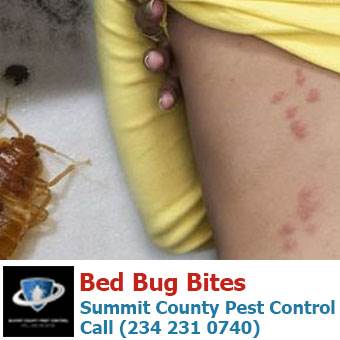Amazing Bed Bug Exterminator Treatment in Houston: Quality and Dependability
Amazing Bed Bug Exterminator Treatment in Houston: Quality and Dependability
Blog Article
Advanced Parasite Control Techniques for a Pest-Free Living Area
In the quest for an unified living atmosphere, the fight against bugs is a constant obstacle that demands ingenious solutions. bed bug exterminator houston near me. While standard insect control techniques have their area, the development of innovative techniques provides a peek right into a future where pest-free spaces are not just a desire but a reality. From Integrated Bug Monitoring approaches to sophisticated High-Tech Parasite Keeping track of Equipments, a new era of bug control is arising. These innovative techniques are improving the landscape of pest management, guaranteeing an extra reliable and reliable approach to guarding our homes and workplaces.
Integrated Insect Administration (IPM)
Integrated Pest Administration (IPM) is a methodical method that focuses on utilizing various techniques to control insects properly while minimizing environmental impact and financial expenses. This technique integrates multiple parasite control strategies such as organic control, habitat manipulation, adjustment of social techniques, and the usage of immune crop varieties. By incorporating these strategies, IPM intends to handle insects in a sustainable and eco accountable manner.
One trick element of IPM is the emphasis on avoidance as the very first line of defense versus insects. This involves monitoring pest populaces, identifying potential dangers, and carrying out proactive actions to minimize pest problems before they come to be troublesome. By employing preventative actions, IPM can dramatically minimize the need for chemical pesticides, consequently reducing potential damage to non-target organisms and the surrounding ecosystem.
Moreover, IPM promotes making use of pesticides only as a last resort and in a targeted fashion. This targeted technique decreases pesticide usage, reduces the threat of pesticide resistance in pest populations, and aids maintain a much healthier environment for both people and wild animals. In General, Integrated Bug Management stands as a comprehensive and sustainable remedy for effective insect control while focusing on ecological preservation and economic effectiveness.
All-natural Repellents and Deterrents
Utilizing natural repellents and deterrents is a lasting and green approach to handling bug populaces in numerous environments. Natural repellents work by leveraging fragrances or materials that parasites find unpleasant or overwhelming, driving them far from the location. Peppermint oil is efficient in preventing crawlers, while citrus peels can repel ants. Planting marigolds around a garden can aid keep away bugs like aphids and mosquitoes as a result of their solid fragrance - bed bug exterminator houston near me. In addition, essential oils such as lavender, eucalyptus, or tea tree oil can serve as natural insect repellents when watered down and splashed around your home.
Physical deterrents additionally play a significant duty in insect control. By including natural repellents and physical deterrents right into bed bug exterminator houston near me insect monitoring techniques, people can create a pest-free living room while reducing the ecological impact.
Targeted Bug Exclusion Methods
When implementing effective insect control techniques, targeted pest exemption methods are essential for avoiding specific parasites from accessing or infesting a marked location. These techniques involve recognizing the susceptabilities that pests may make use of to gain access and carrying out procedures to block their accessibility factors (bed bug exterminator houston near me). By focusing on targeted parasite exemption methods, house owners can produce a durable protection against undesirable invaders, advertising a pest-free living space.
Biological Control Approaches

One typical biological control method is the introduction of killer pests like ladybugs or parasitic wasps that feed on certain pests, keeping their populations in check. These predators work as an all-natural form of insect control without the requirement for chemical treatments. Additionally, microbial pesticides stemmed from naturally happening anonymous microorganisms, fungis, or infections can infect and kill insects while posing very little danger to human beings and beneficial here insects.
Carrying out organic control approaches calls for a thorough understanding of the ecosystem and the bugs existing to introduce the most efficient natural opponents. By integrating biological control into parasite management practices, homeowners can achieve a pest-free space while promoting ecological equilibrium and reducing reliance on chemical pesticides.
High-Tech Insect Keeping Track Of Systems
Innovative electronic devices play a pivotal duty in contemporary pest control by providing accurate and real-time information with sophisticated pest monitoring systems. These systems make use of advanced modern technology to identify and track bug task, allowing very early intervention and targeted therapies. High-tech pest surveillance systems frequently contain sensors, video cameras, and automated information analysis devices that offer unequaled insights into parasite habits and patterns.

Moreover, state-of-the-art parasite surveillance systems are made to be user-friendly, with intuitive user interfaces that facilitate easy interpretation of information. By leveraging these innovative tools, insect control professionals can apply extra reliable and lasting methods, inevitably developing pest-free environments for domestic and industrial spaces alike.
Conclusion
To conclude, executing advanced pest control techniques such as Integrated Parasite Management, natural repellents and deterrents, targeted parasite exemption methods, biological control methods, and high-tech parasite surveillance systems can successfully create a pest-free home. By making use of a mix of these methods, individuals can prevent and take care of bug invasions in a sustainable and environmentally pleasant way. It is critical to focus on insect control actions to make sure a healthy and comfy living atmosphere.
Report this page